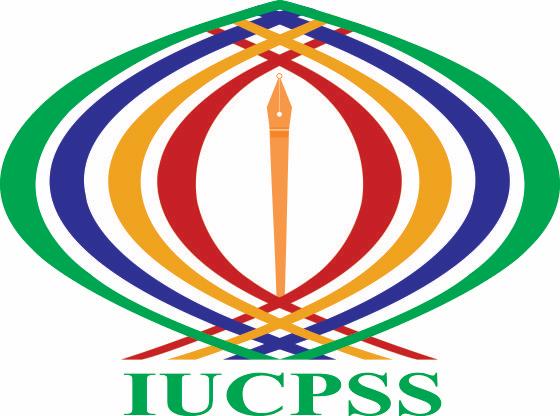29th April 2020 (GNP): Inter University Consortium for Promotion of Social Sciences (IUCPSS) , the largest network of Pakistani universities, conducted an online survey regarding awareness about COVID-19 among students in which 1176 students participated across Pakistan. Among the participants, 55.4% were from urban and 44.6% were from rural areas. Answering to the question over practicing social distancing and other precautionary measures suggested by authorities, almost 31.7% replied positively while 46.2% had a view that to some extent people in their respective areas were taking this pandemic seriously. On the other hand 22.1% stated that people were not practicing any kind of social distance and precautionary measures. Responding to primary source of information of COVID-19, almost 68.7% replied that social media was primary source of information, 39.2% electronic media;27.7% government awareness campaign ;24% family friends and community; 8.9% print media;11.8% social activities while 11.2% were getting information through student societies. Almost 88.8% students were passionate to work as volunteer in fight against COVID-19 while 11.2% were not willing to work as volunteer. Over question about role of students during the crisis of this pandemic, 77.6% students showed their interest to work as volunteer by creating awareness campaign while 22.4% were willing to play their part by indulging them in charity work. Responding on the role of students societies beyond campuses in the fight against COVID-19, 47.4% students were of the view that student societies were playing their role to some extent, 32.5% responded to great extent. On the other hand, 20.1% found no role of student societies during this crisis. Responding to another question about reliability of the information of COVID-19 being shared by general public, 40.2% partially agreed about the reliability of the information , 35.1% students had view that information shared by general public was reliable and authentic, 12.9% strongly agreed about its reliability and authenticity while 11.7% had doubt about the reliability of information about COVID-19.
انٹریونیورسٹی کنسورشیم برائے فروغ سماجی علوم کی طرف سے کووڈ۔ 19 کے بارے آگاہی مہم کا آن لائن سروے
29 اپریل 2020 (جی این پی)۔ پاکستانی یونیورسٹیوں کے سب سے بڑے نیٹ ورک ، انٹر یونیورسٹیز کنسورشیم فار دی پروموشن آف سوشل سائنسز (IUCPSS) نے طلباء میں کرونا وائرس کے بارے میں آگاہی مہم کے دوران ایک آن لائن سروے کیا جس میں 1176 طلباء نے پاکستان بھر سے حصہ لیا۔
شرکاء میں ، 55.4٪ شہری اور 44.6٪ دیہی علاقوں سے تھے۔
سماجی فاصلوں کی ہدایات پر عمل کرنے اور حکام کے ذریعہ پیش آنے والے احتیاطی تدابیر کے بارے میں سوال کا جواب دیتے ہوئے ، تقریبا.7 31.7٪ نے مثبت جواب دیا جبکہ 46.2٪ لوگوں کا موقف ہے کہ کسی حد تک اپنے اپنے علاقوں میں لوگ اس وبائی صورتحال کو سنجیدگی سے لے رہے ہیں۔
دوسری طرف 22.1٪ نے کہا کہ لوگ کسی بھی طرح کے سماجی فاصلے اور احتیاطی تدابیر اختیار نہیں کررہے ہیں۔ کرونا وائرس کے بنیادی ذرائع کے جواب میں ، تقریبا 68 68.7٪ نے جواب دیا کہ سوشل میڈیا معلومات کا بنیادی ذریعہ ہے ، 39.2٪ الیکٹرانک میڈیا ، 27.7٪ سرکاری شعوری مہم ، 24٪ خاندانی دوست اور برادری ، 8.9٪ پرنٹ میڈیا ، 11.8٪ سماجی سرگرمیاں جبکہ 11.2٪ طلباء سوسائٹیز کے ذریعے معلومات حاصل کررہے تھے۔ تقریبا 88.8٪ طلباء کرونا وائرس کے خلاف آگاہی اور احتیاطی مہم میں رضاکار کی حیثیت سے کام کرنے کا شوق رکھتے تھے جبکہ 11.2٪ رضا کار کے طور پر کام کرنے کو تیار نہیں تھے۔ اس وبائی امراض کے بحران کے دوران طلباء کے کردار کے بارے میں سوالات پر 76.6٪ خواہشمند طالب علموں نے شعوری مہم چلا کر رضاکارانہ خدمات انجام دینے میں اپنی دلچسپی ظاہر کی تھی جبکہ 22.4 فیصد خیراتی کاموں میں شامل ہوکر اپنا کردار ادا کرنے پر رضامند ہیں۔ کرونا وائرس کے خلاف آگاہی مہم میں کیمپس سے ہٹ کر طلباء سوسائٹیز کے کردار پر ردعمل دیتے ہوئے ، 47.4٪ طلباء کا موقف تھا کہ طلبہ سوسائٹیز کچھ حد تک اپنا کردار ادا کررہی ہیں ، 32.5٪ نے مثبت جواب دیا۔ دوسری طرف ، 20.1٪ نے اس بحران کے دوران طلباء کی سوسائٹیز کا کوئی کردار نہیں پایا۔ عام لوگوں کے ذریعہ کرونا وائرس کی معلومات کے بارے میں ایک اور سوال کے جواب میں ، 40.2٪ نے مستند معلومات کے بارے میں جزوی طور پر اتفاق کیا ، 35.1٪ طلباء کا خیال تھا کہ عام لوگوں کی مشترکہ معلومات قابل اعتماد اور مستند ہیں 12.9٪ پر سختی سے اتفاق کیا جب کہ 11.7٪ کو کرونا وائرس کے بارے میں مستند معلومات کے بارے میں شک تھا۔

